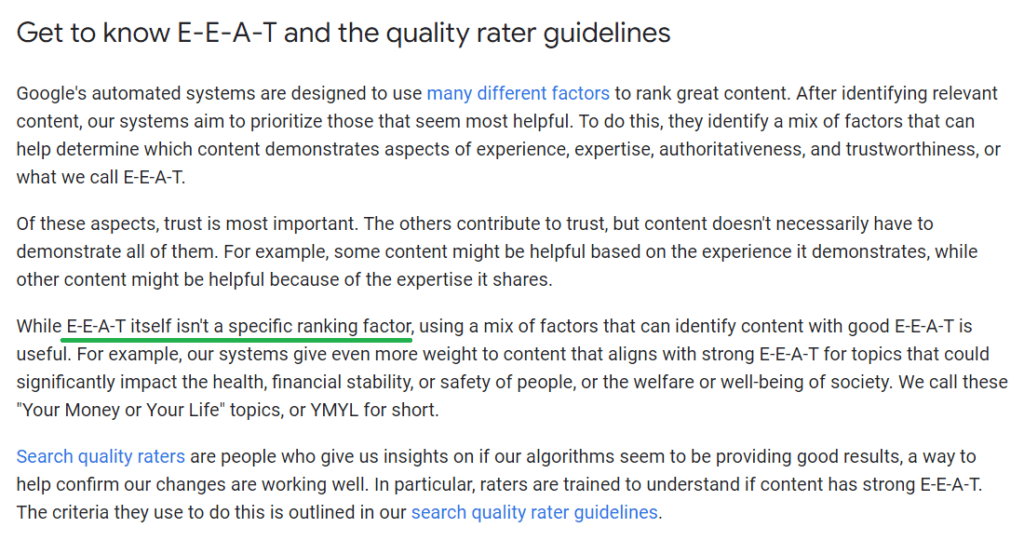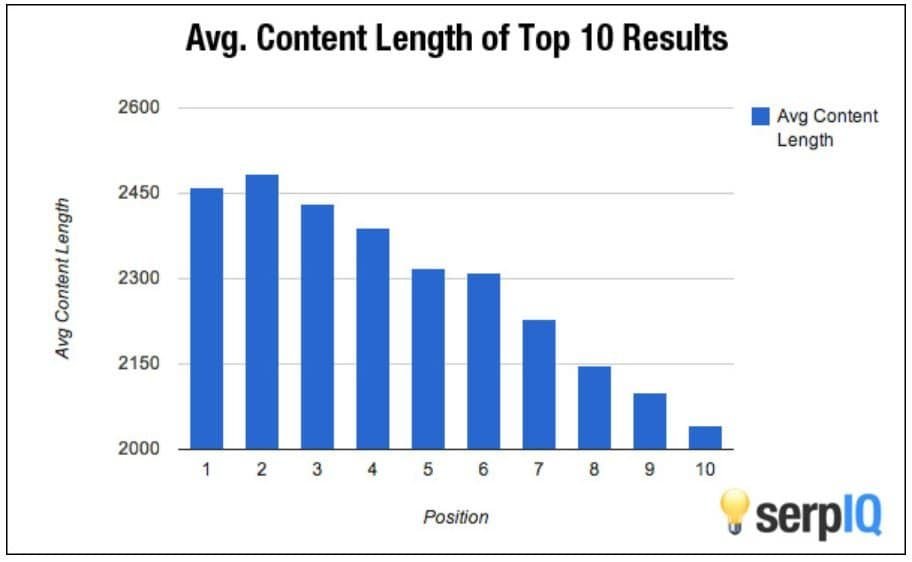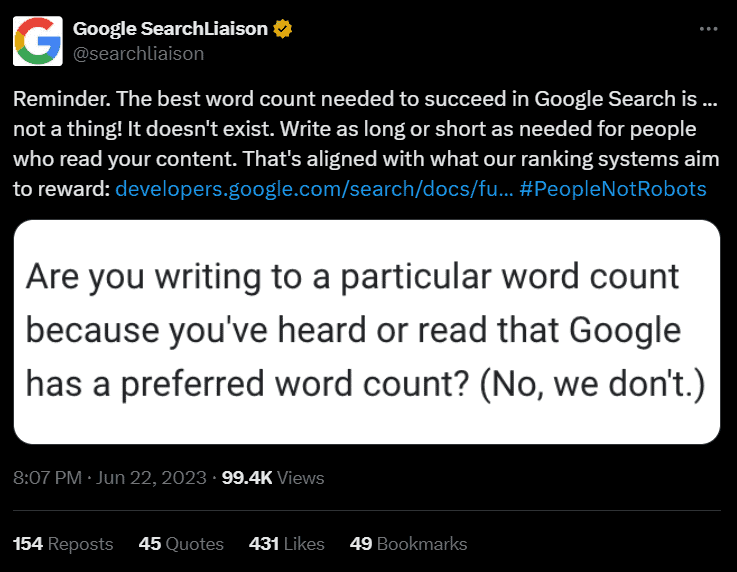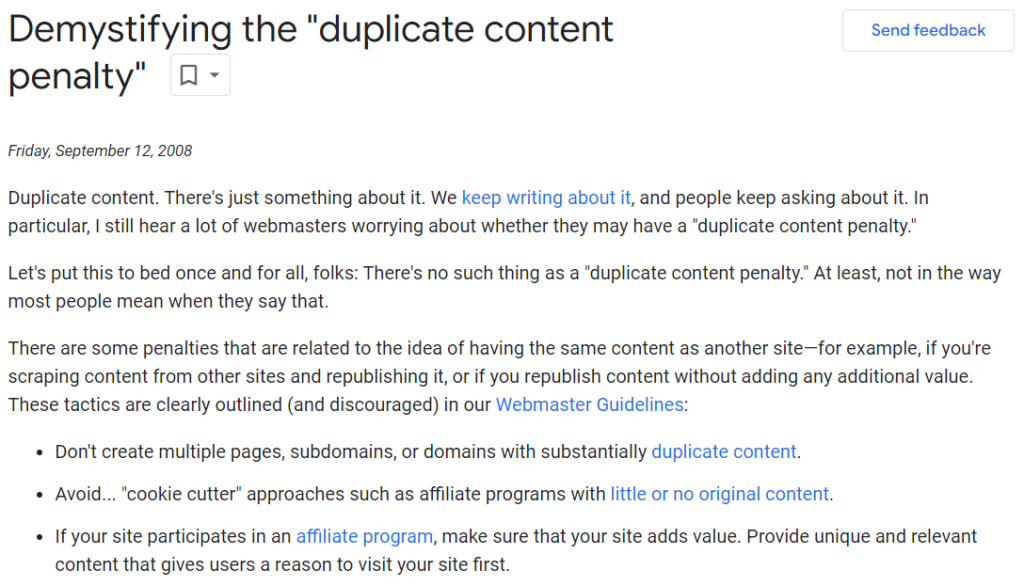In this article, I’ll debunk the most common SEO myths circulating in the industry for years.
Search engine algorithms constantly change, and relying on misconceptions about SEO may waste a lot of time and resources.
Let’s debunk the most common SEO myths so you can implement effective strategies to improve your website’s search visibility.
Site Speed (Core Web Vitals) is a Major Ranking Factor
This is probably the most common SEO myth I encountered in my practice. Poor website speed is often cited as the number one problem that needs to be addressed to improve SEO.
This myth has its roots in the blog posts where Google confirmed that it uses site speed in web and mobile search ranking.
But even in 2010 when Google first confirmed site speed as a ranking factor, they emphasized that site speed “doesn’t carry as much weight as the relevance of a page“:

Later in 2018 when Google confirmed site speed as a factor in mobile search ranking, they noted that site speed “will only affect pages that deliver the slowest experience to users“:

With the introduction of Core Web Vitals, this myth has become even more common.
While improving Core Web Vitals can potentially lead to better rankings, they are just a kind of a “tie-breaker” in the ranking algorithm for pages that have equally good content:

Therefore, while site speed affects search engine rankings, it is not the primary but a minor ranking factor.
E-A-T (E-E-A-T) is a Direct Ranking Factor
Google first mentioned the concept of E-A-T (Expertise, Authoritativeness, and Trustworthiness) in 2014 in its Search Quality Evaluator Guidelines.
However, everyone and their mother began to actively discuss E-A-T in August 2018, following the famous Google “Medic” algorithm update. The update negatively impacted many sites in the “Your Money Your Life” industries.
Since then many SEOs have believed that E-A-T is a direct ranking factor.
While E-A-T, which later became E-E-A-T (with “Experience” at the beginning), is indeed important for building credibility and trust with users, it is not a direct ranking factor in the traditional sense.
This is a concept used by human raters hired by Google to evaluate the overall quality of Google Search results. Google’s engineers then take these evaluations into account when updating the ranking system. So E-A-T is not a metric that search engines directly use to determine rankings.

Certainly, your content should be authoritative and trustworthy, and the author should demonstrate experience and expertise.
However, demonstrating strong E-E-A-T goes beyond adding Contact Us, About Us, and author bios to the website.
The important thing is that users need to be confident that your content is written (or at least reviewed) by subject matter experts who have the necessary experience on the topic.
You Need More Backlinks to Rank Higher
One of the oldest SEO myths is that the quantity of backlinks directly correlates with higher search engine rankings.
I must admit that earlier (10-15 years ago) the number of backlinks was one of the most important ranking factors. Although I didn’t do SEO back then, I know that at that time building a bunch of low-quality backlinks to a page was enough to make the page rank high in search results.
However, search engine algorithms have evolved significantly and have become more sophisticated in evaluating the quality and relevance of backlinks.
Now it’s more important to focus on acquiring high-quality backlinks from authoritative and relevant websites, rather than focusing solely on the number of backlinks.
Of course, a website needs backlinks to get off the ground and start ranking in search results for relevant search queries. However, it’s not about the number of backlinks, but the quality and relevance of those links.
Word Count is a Ranking Factor
Another common SEO myth is that articles or web pages with higher word counts automatically rank better in search engine results.
The roots of this misconception likely lie in a 2015 study that found that long-form content ranks very well.

After this study, many SEOs became obsessed with publishing “comprehensive guides” that are “at least 2000 words”, even if you need to explain simple topics like how to boil eggs.
Many SEO content writers have started using wordiness or adding a lot of unnecessary information into their articles just to meet the “minimum threshold” of 2000+ words.
While it’s true that longer content can provide more in-depth information and potentially attract more backlinks, word count itself is not a direct ranking factor.

The truth is that your content should be comprehensive, meaning it should cover the topic in detail. Sometimes it takes 5000 words, sometimes 500 words.
Just because your article is less than 2000 words doesn’t necessarily mean it isn’t comprehensive and won’t rank well on Google.
Social Media Signals Directly Influence Search Rankings
The idea that a high number of likes and shares on social media automatically translates to better search rankings is among the most persistent SEO myths.
While social media KPIs can be valuable, they are not used for rankings.
However, social media can indirectly influence SEO through increased website traffic and brand awareness. Engaging content shared on social media can attract more visitors to your website, potentially leading to more backlinks that search engines consider.
So creating viral content that blows up social media may help you indirectly improve your search engine visibility.
Duplicate Content Penalty
The statement that duplicate content will result in a penalty from search engines is one of the most ingrained SEO myths.
Indeed, your website won’t rank high if you simply copy content from websites that already rank high for your target keywords. Search engines are smart enough to determine the original version of the content to display in search results.
However, many SEOs and website owners still believe that duplicate content within a website can result in a penalty. This is not true – there is no special penalty for duplicating content.

So if you have duplicate pages on your website, search engines will choose one version (canonical) for indexing and ranking. The rest will simply be ignored, and your site will not be penalized.
At the same time, be aware that certain spam techniques that involve creating duplicate content, such as scraped content, violate Google’s guidelines. If you engage in this practice, your website can be penalized.
Fresh Content Ranks Better
There is a common belief that fresh content is necessary to please Google’s algorithms and improve search engine rankings.
The fact is that Google shows users the most relevant and high-quality content. This means that both fresh and evergreen content can rank well depending on the topic.

For example, if you have a “Best Movies of This Year” article, you’ll need to update it regularly to ensure your article has all the new movies worthy of adding to your list.
However, if you have an article on a topic like “How to tie shoelaces”, no need to update it regularly since this topic has not changed much over the years.
Another variation of this SEO myth is the belief that consistently publishing new content is necessary to maintain or improve search engine rankings. Once again, it’s not about the freshness, but the quality of published articles.
Instead of focusing solely on quantity, prioritize creating high-quality content that covers the topic in depth.
SEO is a Quick and Easy Job
When it comes to SEO, many website owners, CEOs, and even developers believe that SEO is a quick and easy job that can be done overnight.
They think some quick fixes such as optimizing meta tags will magically boost their website’s ranking on search engine results pages. However, this is another misconception.
SEO is not a one-time task – achieving long-term success in SEO requires a sustained and ongoing effort.
Effective SEO requires a strategic approach to optimizing your website. It takes some time and effort to implement properly, and the results are not immediate.
So instead of looking for quick fixes, invest in long-term strategies that show a much greater ROI.
Conclusion
Believing in misconceptions can lead to wasted time and resources, and not just in SEO. When you separate fact from fiction, you can make informed decisions that lead to tangible results.
I hope this article will help you avoid common SEO myths and give you an advantage over competitors who still believe in these misconceptions.
If you want to learn more ways to increase your organic traffic, check out these proven SEO tips.